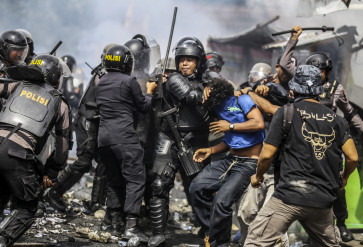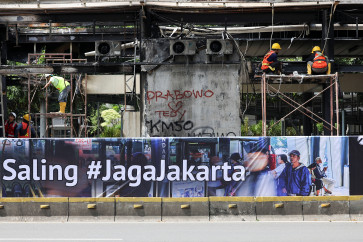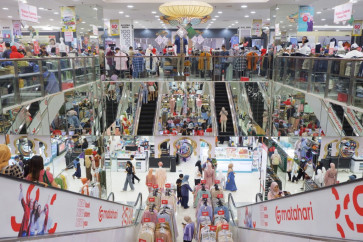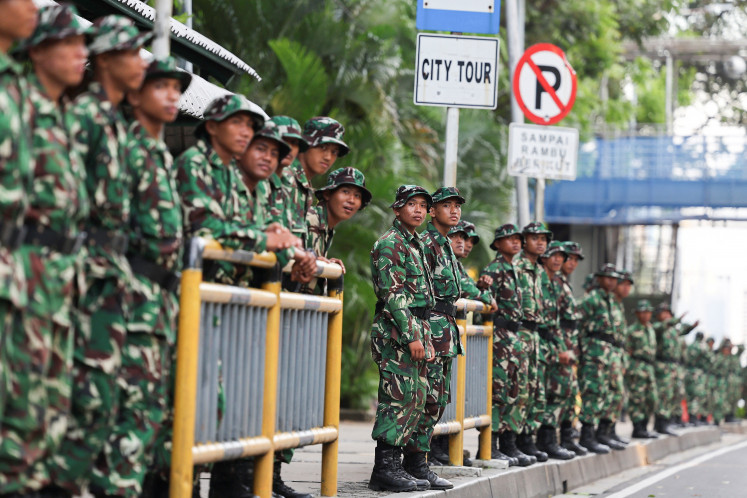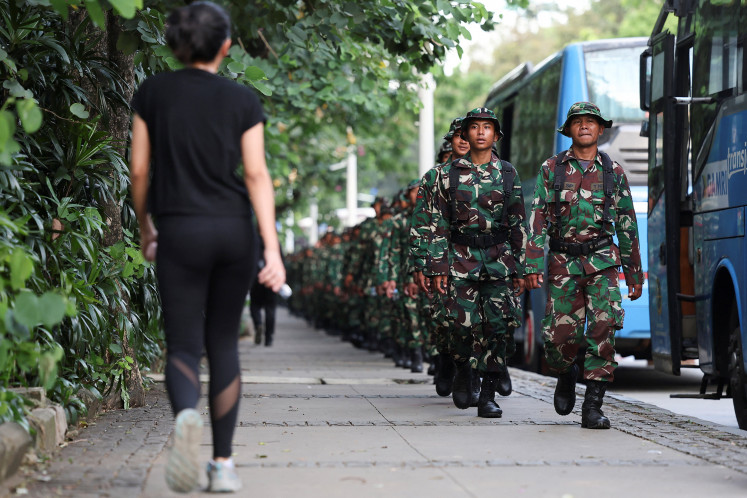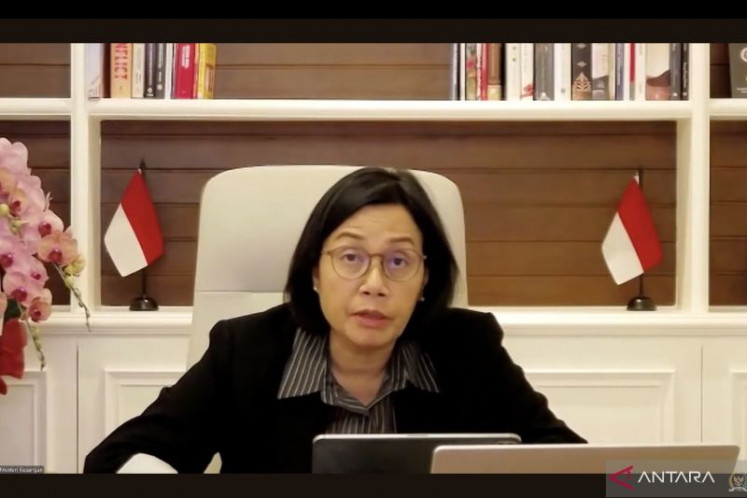Popular Reads
Top Results
Can't find what you're looking for?
View all search resultsPopular Reads
Top Results
Can't find what you're looking for?
View all search resultsStricter rules sought as media moguls enter presidential race
Election organizers and the nationâs broadcast commission said they were now devising stricter regulations on media campaigns after at least two of the nationâs media tycoons had declared their bids to join the 2014 presidential race
Change text size
Gift Premium Articles
to Anyone
E
lection organizers and the nation's broadcast commission said they were now devising stricter regulations on media campaigns after at least two of the nation's media tycoons had declared their bids to join the 2014 presidential race.
General Elections Commission (KPU) commissioner Ferry Kurnia Rizkiyansyah said the commission was trying to formulate stronger points in regulating political campaigns in the media, particularly on television, which as of today still has the largest audience.
'We are currently discussing the matter with the Indonesian Broadcasting Commission [KPI] and the Elections Supervisory Committee [Bawaslu]. We want fair and proportional political campaigns in the media for the election,' he said.
Ferry said there would be a regulation to limit the duration of campaign advertisements on television for each political party.
Based on data from the Central Statistics Agency (BPS), television is still the number one source of news and entertainment for most Indonesians. The data from 2012 showed that 91.7 percent of all Indonesians over the age of 10 watched television, while 18.57 percent listened to radio and only 17.66 percent read newspapers and magazines.
Communications expert Ade Armando said that parties with strong media affiliations would have a greater chance to influence political preferences among the public, given the fact that television was still the public's main source of information. 'The thing is that these parties have myriad opportunities to appear on their television stations' regular programs, and not only during the political campaign period,' he said.
The People's Conscience (Hanura) Party, the Golkar Party and the National Democrat (NasDem) Party are three of the 15 political parties participating in the 2014 elections that have powerful media tycoons in senior positions, two of whom have openly declared their bids to enter the presidential election.
Hary Tanoesoedibjo, who is Hanura's election campaign team chairman and former member of NasDem, owns media giant PT Media Nusantara Citra, which runs 20 television stations including three national terrestrial stations RCTI, Global TV and MNC TV. Golkar chairman Aburizal Bakrie has two television stations, TVOne and ANTV, while NasDem chairman Surya Paloh runs news-based television channel MetroTV.
Aburizal and Hary have already declared their presidential bids, while Surya said he would wait for the results of the legislative elections to decide if his party would nominate its own presidential candidate. Hary officially announced his plan to run as vice-presidential candidate along with Hanura chairman Wiranto on Tuesday.
The KPI said that even though the election was still months away, political parties that effectively controlled TV stations had begun their campaigns.
In April alone, the KPI said, TVOne showed an ad with Aburizal 143 times and reported Aburizal-related news nine times, while ANTV also covered Aburizal. MetroTV broadcast a NasDem advertisement 31 times and covered NasDem-related news 20 times in the same month.
Meanwhile, between October and November last year, when Hary was still in NasDem, RCTI, MNC TV, Global TV and Metro TV showed NasDem advertisements a total of 393 times. Shortly after Hary joined Hanura in February, his national terrestrial television stations combined covered Hanura-related news 11 times in the period of April 2'15.
Critics said the trend was worrying. 'This is a monopoly. These media owners can use their television stations to frequently highlight their political parties. The KPI has to decide whether it is a violation of the regulations or merely a violation of ethics,' said Yusfitriadi, a researcher at the People's Voters Education Network (JPPR).
KPI chairman Mochamad Riyanto said the supervision of television-based political campaigns should have begun by now. 'Based on the KPU regulation, the campaign period in the media can begin 21 days before the election, but we have found some covert campaigns going on. So, we think supervision must start now, as the candidates have officially been endorsed by the KPU,' he said. (koi)


